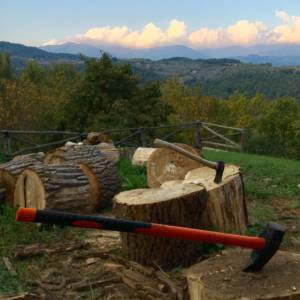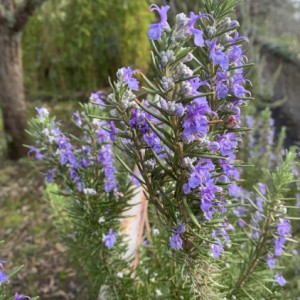Dunch’s Theatricals: a cautionary tale
Having tried once more to draw inspiration from Cornwall’s battered West Penwith coastline Dunch reached a hiatus in his troubled career.
The successes of New York and Venice were a distant memory and his looming ill-health was exacerbated by the vicissitudes of the St Just climate.
The former was a growing list of real and imagined ailments and infirmities while the later was a brute alternation between fog and winter. With increasing frequency he was drawn to the Star Inn, whose thick granite walls and Doom Bar momentarily blocked out the shrieking Atlantic gales.
In desperation he decided one bleak Sunday in February to return to Italy - or as he muttered to himself when well into his cups - ‘a fare un ritorno meritato alla mia Italia bella’ - with tears in his eyes.
Two weeks later and with finances from a source unknown, he had miraculously set himself up in a ground floor lodging in Fiesole, that antique seat of Etruscan patriarchs that towers above upstart Florence.
Here he threw off his adopted name of Finisterre and rechristened himself Lusitania in protest at his native country’s hostility to and withdrawal from the European Union.
His first project was a retrospectively ill-advised attempt to recreate something of the atmosphere of the outdoor Mynack Theatre on the sunken patio that his landlady grudgingly admitted him to use. The play, hastily written by himself in the full flush of his fury, was entitled, The Badger and the Olive Gove.
Somewhat fortuitously an olive grove formed the backdrop to the makeshift stage of rude terracotta. A coincidence one might wonder or perhaps a sign of the reflowering of Dunch’s long subdued genius and his renown for making sly connections where others only saw trees?
At four hours long the play was a poorly disguised allegory on the infamies of a not distant referendum campaign. Local critics Bossi and Carradore were not sympathetic.
‘It is a rancorous diatribe of foul expletives that leaves the mind incredulous and the buttocks o’er numbed. While we sympathize with the authorial premise we remain aghast at its execution.’
Indeed, the iron seats that Dunch had hastily adopted for the audience with neither cushions nor forethought led to the spectacle of one local dignitary rising up like a harpooned whale in the middle (or at least what he hoped was the middle) of the performance to bellow at Dunch,
‘Signore, mi ha fatto una Macedonia del culo, bastardo di extracommunitari.’
Which roughly translated would be,
Sir, you have sliced my arse like a fruit salad, you no good non-EU citizen’.
Dunch was crestfallen at this needlessly hurtful reminder of his newfound and downgraded status amongst peoples he had hitherto regarded with warm conviviality.
But true to his nature he could not but react with an instant lust for revenge. Picking up a bottle of single estate, cold milled virgin Tuscan olive oil, he thrust it at his tormentor crying,
‘You think we give a toss about your tossing Denominated Areas of Geographical Origin, you teapot. You wait and see. YOU. JUST. WAIT. AND. SEE.
And then in a taunting childlike Brummy accent began to chant,
Prosecco no more, MATE.
Parmigiana no more, PAL.
Barbera no more, DOC.
Farfalle al sugo di cinghiale, no more, you Stilton hating bastard ...
(With his spittle doing that flecking thing.)
And on and on as pandemonium broke out around him.
To cut a long and distressing story short that involved the Mayor, fire brigade, British and Portuguese consuls, the Vice President of the Consortium of Tuscan olive growers and the Polizia Municipale, the trenchant voices of Bossi and Carradore concluded their coruscating review of Il Tasso e L’Oliveto Goveano in L’istrice di Venerdi’ (The Friday Porcupine) thus,
‘If you listen to any more of this claptrap you’ll be wanting to jump in the Arno, so you will. You’d be better off looking at this calming picture of rosemary in bloom.’ (Extra)
(As told to me by Twitter.)


Comments
Sign in or get an account to comment.


